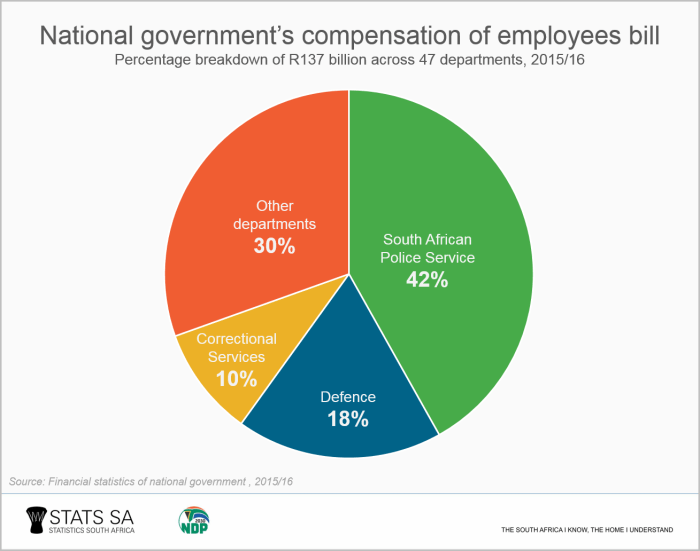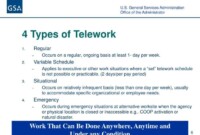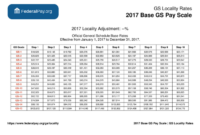GS Pay and Federal Agencies: Which Ones Pay the Best? – Navigating the complex world of federal government salaries, “GS Pay: Which Federal Agencies Pay the Most?” delves into the intricacies of the General Schedule (GS) pay system, uncovering the agencies that offer the highest compensation and the factors driving these disparities.
This exploration will guide you through the nuances of GS pay, from understanding its structure and influencing factors to comparing it with private sector salaries and exploring career advancement opportunities.
This in-depth look at GS pay provides a comprehensive overview of the federal government’s compensation landscape. We’ll examine the various pay grades within the GS system, revealing the salary ranges associated with each level. Beyond base pay, we’ll explore the impact of location, experience, performance, and specific job titles on your potential earnings.
This analysis will shed light on the intricate factors that shape the compensation landscape within the federal government.
Understanding GS Pay and Federal Agencies

The General Schedule (GS) pay system is a standardized pay structure used by the federal government to determine the salaries of its civilian employees. This system provides a framework for fair and equitable compensation, ensuring that employees are paid based on their experience, skills, and responsibilities.
Right, so you wanna know which Fed agencies are gonna line your pockets with the most dosh, yeah? Well, HR roles are always in demand, and you can find a full breakdown of the GS pay scale for 2024 in this GS Pay Scale 2024 for Human Resources: A Comprehensive Guide.
Knowing that can help you pinpoint the best agencies for your HR skills, and then you can start applying for those sweet, sweet government jobs!
GS Pay System Structure
The GS pay system is structured based on a series of grades, ranging from GS-1 to GS-15, with each grade representing a different level of experience and responsibility. Each grade is further divided into 10 steps, with each step representing a salary increase.
- GS-1 to GS-5: These grades typically represent entry-level positions, requiring minimal experience.
- GS-6 to GS-10: These grades represent mid-level positions, requiring some experience and specialized skills.
- GS-11 to GS-15: These grades represent senior-level positions, requiring significant experience, expertise, and leadership abilities.
Factors Influencing GS Pay
Several factors influence the GS pay of federal employees, including:
- Experience: Employees with more experience typically receive higher GS grades and steps.
- Location: The cost of living in different geographic locations can impact GS pay. Employees working in areas with higher costs of living may receive higher salaries.
- Performance: Employees who consistently exceed expectations may be eligible for promotions, which can lead to higher GS grades and steps.
GS Pay Ranges
The salary ranges for each GS grade and step are determined by the federal government and are subject to change. The table below provides a general overview of GS pay ranges as of 2023:
| GS Grade | Step 1 | Step 10 |
|---|---|---|
| GS-1 | $21,000 | $27,000 |
| GS-5 | $35,000 | $46,000 |
| GS-10 | $60,000 | $80,000 |
| GS-15 | $120,000 | $160,000 |
“It is not the mountain we conquer but ourselves.”
Edmund Hillary
High-Paying Federal Agencies
The federal government offers a wide range of career opportunities, and some agencies consistently pay higher than others. This can be attributed to factors such as the complexity of the work, the required skillset, and the agency’s mission. Understanding which agencies offer the highest salaries can be valuable for those seeking lucrative federal careers.
Average GS Pay by Agency
The following agencies are known for offering competitive GS salaries, with average pay often exceeding the federal government’s overall average. This data is based on publicly available information and may vary depending on the specific position, location, and experience level.
- Department of Defense (DoD):The DoD is the largest employer in the federal government and consistently ranks among the top-paying agencies. This is due to the demanding nature of its work, which requires specialized skills and often involves working in high-stress environments.
- GS-11:$75,000 – $90,000
- GS-13:$95,000 – $115,000
- GS-15:$130,000 – $160,000
- Department of Homeland Security (DHS):As the agency responsible for national security, DHS offers competitive salaries to attract and retain highly skilled professionals. The agency’s mission-critical roles often require specialized expertise in areas such as cybersecurity, intelligence analysis, and law enforcement.
- GS-11:$70,000 – $85,000
- GS-13:$90,000 – $110,000
- GS-15:$125,000 – $155,000
- Department of Justice (DOJ):The DOJ is responsible for enforcing federal laws and protecting the rights of citizens. This involves a wide range of roles, including attorneys, investigators, and analysts, who require specialized skills and knowledge.
- GS-11:$72,000 – $87,000
- GS-13:$92,000 – $112,000
- GS-15:$127,000 – $157,000
- Department of Energy (DOE):The DOE plays a crucial role in ensuring the nation’s energy security and promoting scientific research. The agency’s work often involves highly technical fields, such as nuclear engineering, renewable energy, and environmental science.
- GS-11:$73,000 – $88,000
- GS-13:$93,000 – $113,000
- GS-15:$128,000 – $158,000
- Department of Health and Human Services (HHS):HHS is responsible for protecting the health of Americans, which involves a wide range of activities, including medical research, public health initiatives, and social services. The agency’s work often requires specialized skills in healthcare, public health, and social work.
- GS-11:$68,000 – $83,000
- GS-13:$88,000 – $108,000
- GS-15:$123,000 – $153,000
Comparing GS Pay to Private Sector Salaries
While the GS pay scale offers a structured framework for federal employee compensation, it’s crucial to understand how it compares to salaries in the private sector for similar roles. This comparison can shed light on the financial advantages and disadvantages of working in the federal government.
GS Pay vs. Private Sector Salaries
The comparison between GS pay and private sector salaries is complex and depends on various factors, including location, experience, and specific job responsibilities. Generally, entry-level GS positions may offer salaries comparable to those in the private sector. However, as you progress in your career and reach higher GS grades, the pay gap between the federal government and private companies may widen.
Right, so you wanna know which Federal Agencies are gonna be splashing the cash, yeah? Well, it’s all about the GS Pay Scale, bruv. If you’re thinking of becoming an admin assistant, check out Navigating the GS Pay Scale 2024: A Comprehensive Guide for Administrative Assistants , it’ll give you the lowdown on how much you could be raking in.
Once you’ve got a handle on the pay scale, you can start sussing out which agencies are offering the best rates for your skills.
- Entry-Level Positions:For entry-level positions, GS pay may be competitive with salaries in the private sector. For example, a GS-5 position might offer a salary similar to a starting salary for a similar role in a private company.
- Mid-Level and Senior Positions:As you move to mid-level and senior positions, the pay gap between GS pay and private sector salaries can become more pronounced. Private companies may offer higher salaries and bonuses to attract and retain experienced professionals. For example, a GS-13 position might have a salary lower than a comparable position in a private company, especially in fields like technology or finance.
Pros and Cons of Federal Government vs. Private Sector Compensation and Benefits
Both the federal government and private sector offer unique advantages and disadvantages in terms of compensation and benefits. Understanding these differences can help you make an informed decision about your career path.
Federal Government
- Stability and Job Security:Federal government jobs are known for their stability and job security. Federal employees are generally protected from layoffs and have access to robust retirement plans.
- Comprehensive Benefits:Federal employees enjoy a wide range of benefits, including health insurance, life insurance, paid vacation and sick leave, and retirement benefits.
- Work-Life Balance:Federal jobs often offer a better work-life balance compared to private sector jobs. This can include shorter workweeks, flexible schedules, and generous leave policies.
- Limited Salary Growth Potential:The GS pay scale has a defined structure, which can limit salary growth potential, especially for experienced professionals.
- Pay Compression:The GS pay scale can lead to pay compression, where employees with different levels of experience and skills are paid similar salaries. This can affect employee morale and motivation.
Private Sector
- Higher Salary Potential:Private companies often offer higher salaries and bonuses, especially for experienced professionals.
- Faster Career Advancement:Private companies may have faster career advancement opportunities compared to the federal government.
- Variety of Opportunities:The private sector offers a wider range of opportunities and industries to explore.
- Less Job Security:Private sector jobs can be more vulnerable to layoffs and economic downturns.
- Fewer Benefits:While private companies offer benefits, they may not be as comprehensive as those offered by the federal government.
Pay Compression in the GS System, GS Pay and Federal Agencies: Which Ones Pay the Best?
Pay compression within the GS system refers to the situation where employees with different levels of experience and skills are paid similar salaries. This can occur when the GS pay scale is not adjusted to reflect the changing market value of skills and experience.
- Impact on Employee Morale:Pay compression can lead to decreased employee morale and motivation. When employees feel that their contributions are not being adequately recognized, they may become less engaged and productive.
- Difficulty Attracting and Retaining Talent:Pay compression can also make it difficult for federal agencies to attract and retain highly qualified employees. When salaries are not competitive with the private sector, agencies may struggle to recruit and retain top talent.
- Solutions to Pay Compression:Addressing pay compression requires a multifaceted approach, including adjusting the GS pay scale, implementing performance-based pay systems, and providing other forms of compensation and recognition.
Career Advancement and Salary Growth in the Federal Government
The federal government offers a structured career path with opportunities for advancement and salary growth. This path typically involves gaining experience, demonstrating strong performance, and obtaining promotions.
So, you’re thinking about a career in the public sector, eh? You wanna know which federal agencies are dishing out the best GS pay, right? Well, if you’re in IT, you need to check out Navigating the GS Pay Scale 2024: A Comprehensive Guide for IT Professionals.
It’ll give you the lowdown on how the pay scale works and which agencies are known for being generous with their pay packets. Once you’ve got the inside scoop, you can start applying to those juicy jobs and get that sweet, sweet government cash rolling in.
Salary Growth Opportunities
The federal government utilizes the General Schedule (GS) pay scale to determine salary ranges for most positions. This scale is based on a combination of factors, including grade level, step within the grade, location, and experience. Salary growth within the federal government is often tied to promotions, performance evaluations, and longevity.
- Promotions:As you gain experience and demonstrate strong performance, you may be eligible for promotions to higher GS grades, which come with higher salary ranges. These promotions typically require meeting specific requirements, such as completing training programs or achieving specific performance goals.
- Performance Evaluations:Federal employees are typically evaluated annually on their performance. Strong performance evaluations can lead to salary increases, even within the same grade. These evaluations assess factors such as meeting deadlines, exceeding expectations, and contributing to the overall mission of the agency.
- Longevity:Federal employees also receive annual step increases within their GS grade, provided they meet performance standards. These step increases are designed to reward employees for their experience and commitment to the government.
Typical Career Paths
The specific career path within the federal government varies depending on the agency and the specific job role. However, many federal employees follow a similar trajectory:
- Entry-Level Positions:Many federal employees begin their careers in entry-level positions, such as GS-5 or GS-7. These positions typically require a bachelor’s degree and may involve assisting more senior employees with tasks.
- Mid-Level Positions:With experience and strong performance, employees can progress to mid-level positions, such as GS-9 or GS-11. These positions typically involve more responsibility and may require specialized skills or knowledge.
- Senior-Level Positions:Experienced and highly skilled employees can advance to senior-level positions, such as GS-12 or GS-13. These positions often involve leadership roles and require a high level of expertise.
Examples of Successful Career Trajectories
Many federal employees have successfully navigated the career path within the government, achieving significant salary growth and career advancement. For example, a recent graduate with a bachelor’s degree in engineering might start as a GS-5 engineer at a federal agency.
After several years of strong performance and training, they could be promoted to a GS-7 engineer position. With continued dedication and professional development, they could eventually advance to a GS-11 or even GS-13 engineering position, leading to a substantial salary increase.
“The federal government offers a rewarding career path with opportunities for growth and advancement. With hard work and dedication, employees can achieve significant career success and financial security.”
Resources for Finding Federal Jobs and Salaries
Finding a fulfilling and rewarding career in the federal government can be a fantastic choice, offering stability, benefits, and the opportunity to serve your country. But navigating the vast landscape of federal agencies and job opportunities can seem daunting. Fortunately, there are several reliable resources to help you find your ideal federal position and understand the associated salary range.
Reliable Resources for Federal Job Searching
The first step in your federal job search is to familiarize yourself with the available resources. These resources provide comprehensive information about federal job openings, salary scales, and application procedures.
- USAJOBS: The official website for federal job opportunities, USAJOBS, is your primary resource. It lists thousands of open positions across various agencies and branches of the government. You can search by , location, agency, and job series to find the positions that align with your skills and interests.
- Office of Personnel Management (OPM): OPM sets federal pay scales, provides guidance on federal employment, and offers resources for career development. Their website contains valuable information on GS pay scales, federal benefits, and training opportunities.
- Federal Agency Websites: Many federal agencies have their own career websites that list specific job openings and provide details about their missions and culture. Explore the websites of agencies you are interested in to learn more about their opportunities and application procedures.
- Federal Job Boards: Several online job boards specialize in federal employment, such as Indeed, LinkedIn, and GovernmentJobs.com. These platforms often list federal positions and can provide insights into salary expectations and industry trends.
Obtaining Salary Information
Understanding the salary range for specific federal positions is crucial for making informed career decisions. The following resources can help you gather accurate salary information:
- OPM Salary Tables: OPM publishes annual salary tables that Artikel the pay scales for each GS grade and step. These tables are available on the OPM website and can provide a clear understanding of salary expectations for different positions.
- USAJOBS Job Listings: Each job posting on USAJOBS includes a salary range based on the GS grade and step associated with the position. This information can help you gauge the potential earning potential for specific roles.
- Federal Employee Salary Databases: Several websites, such as Glassdoor and Salary.com, collect and analyze salary data from federal employees. These databases can provide insights into average salaries for specific positions and agencies, offering a broader perspective on salary trends.
Crafting a Competitive Resume and Cover Letter
Your resume and cover letter are essential tools for showcasing your qualifications and making a compelling case for why you are the ideal candidate for a federal position.
- Tailor Your Resume: Federal hiring processes often involve -based searches, so tailor your resume to match the specific requirements Artikeld in the job announcement. Highlight your relevant skills, experience, and qualifications using the same language used in the job description.
- Quantify Your Accomplishments: Instead of simply listing your responsibilities, quantify your achievements using metrics and data to demonstrate your impact. For example, instead of saying “Managed a team,” write “Managed a team of 10 employees, resulting in a 15% increase in productivity.”
- Highlight Your Federal Experience: If you have prior experience working for the federal government, emphasize those experiences and any relevant certifications or training. Federal agencies often value candidates with prior federal experience, demonstrating familiarity with government processes and regulations.
- Craft a Targeted Cover Letter: Your cover letter should be tailored to each specific job application, highlighting how your skills and experience align with the position’s requirements. Clearly articulate your interest in the agency and the specific role, demonstrating your passion for public service.
Networking and Building Relationships
Networking is a valuable tool for navigating the federal job market and gaining insights into opportunities.
- Attend Federal Job Fairs: Federal job fairs provide an excellent opportunity to meet representatives from various agencies, learn about their missions, and inquire about open positions. These events can help you connect with hiring managers and gather valuable information about the federal job market.
- Connect with Federal Employees: Reach out to federal employees working in your desired field or agency. Connect with them on LinkedIn or attend industry events to learn about their experiences, gather insights, and potentially explore potential job openings.
- Join Professional Organizations: Membership in professional organizations related to your field can provide opportunities for networking with federal employees, attending industry events, and accessing resources for career advancement.
End of Discussion: GS Pay And Federal Agencies: Which Ones Pay The Best?
Understanding the nuances of GS pay and the factors influencing salary within different federal agencies empowers you to make informed career decisions. Whether you’re seeking a rewarding career in public service or simply curious about the compensation landscape within the federal government, this exploration provides valuable insights.
Armed with this knowledge, you can strategically navigate the federal job market, identify agencies that align with your career goals, and make informed choices that maximize your earning potential. Remember, the journey to finding the right fit within the federal government begins with understanding the intricate details of its compensation system.


